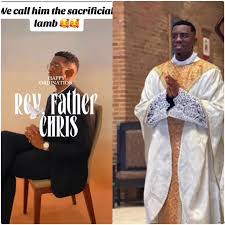#EndSARS: The Power Of Nigeria’s Celebrities By Josephine Mahachi
Nigerians endured the notorious Federal Special Anti-Robbery Squad for 18 years. The unit was disbanded on two occasions. The third time around, the power of celebrity is at play, writes Josephine Mahachi.
It may be hard to believe that the very people Nigerians look to for their safety and security are those who cause them grief and pain. That has been the reality when it comes to the operatives of the now disbanded Special Anti-Robbery Squad (SARS).
The police unit was created as one of 14 within Nigeria’s State Criminal Investigation and Intelligence Department in 1992 to pursue suspects in armed robberies and kidnappings. Its operatives were licensed to carry guns and work undercover.
The SARS debacle
Nigerians saw a problem as soon as the unit began behaving like a de facto militant organization. Critics said SARS was targeting young and upwardly mobile citizens on spurious suspicions.
There was talk of SARS operatives manipulating evidence in online fraud cases by forcing “suspects” to make ATM withdrawals and of raping some of the women they detained.
The public was never silent over their oppression at the hands of SARS, or the two occasions that it was disbanded and revived.
A few days ago, street protests erupted and quickly spread across Nigeria’s states, as the hashtag #EndSARS took over social media. On the weekend, the Buhari government declared SARS dissolved and replaced by a new unit.
Enter WizKid, Burna Boy, Cardi B
As the anti-SARS street protests began, celebrities in Africa and elsewhere stepped into the social media campaign. On Twitter, Nigerian singer WizKid pulled President Muhammadu Buhari back to reality in Nigeria when the African leader sent a tweet to his US counterpart.
Nigerian officials called on WizKid to respect his elders, but he was undeterred. And, other acclaimed singers with Nigerian and African roots came out in support, amplifying the public agitation.
Donald trump is not your business!
Old man! Police/Sarz still killing
Nigerian youth on a daily! Do something!
Nothing concern u for America!
Face your country !! https://t.co/thxmoYb7VE— Wizkid (@wizkidayo) October 4, 2020
The chorus of SARS unit critics with ties to Nigeria soon included Davido, the Atlanta-born Nigerian singer and record producer and Tiwa Savage, the Lagos-born London-raised Nigerian singer.
Power to the youth
The rise of the Nigerian celebrities and their estimated collective social media following of more than 20 million people, gave more power to the youth.
Nigerian cities became the scene of peaceful anti-SARS protests by their fans and those of celebrities such as Don Jazzy, Timi Dakolo, Small Doctor, Vector, Rude Boy, Falz, Desmond Eliot and Banky W too.
Social and political activists such as Omoyele Sowore, Aisha Yesufu, Segun Awosanya just to mention a few also rose up in support of the #EndSARS crusade.
The #EndSARS protests resonated with international celebrities: In the US, stars such as Drake, Diddy, Big Sean, Cardi B, John Boyega, Trey Songz provided backup to the Nigerian singers.
An African wave
Nigeria’s SARS saga is the latest example of the growing influence of celebrity in Africa. Bobi Wineuses social media quite effectively to confront the government in Uganda. The musician-turned-politician was arrested several times as his followers grew on Facebook, Twitter and Instagram.
During the most recent attacks by South Africans on people from other parts of Africa who live in the country, many of Africa’s celebrities shared their views with their social media followers.
Burna Boy, the Grammy-nominated Nigerian singer, and South African rapper AKA, were among them. Condemnation of the xenophobia tried to end the barbarism.
A #BLM spin-off in Africa
At the height of the #BlackLivesMatter movement, conversations about police brutality and repression in Zimbabwe were tagged #ZimbabweanLivesMatter. The activists behind it intended to force advocacy networks and the world’s leaders to press President Emmerson Mnangagwa to end human rights abuses. They wanted to nudge the world’s celebrities too.
The Zimbabwean campaign swelled, and celebrities such as Hollywood’s Ice Cube and the South African actress Pearl Thusi and opposition politician Julius Malema had their say.
Jah Prayzah, the biggest recording artist in Zimbabwe, ignored the calls from his fans to join the wave. The price became apparent recently when he urged Zimbabweans to vote for him to win an international award: He was aptly reminded of his refusal to back #ZimbabweLivesMatter, and the votes went to Burna Boy of Nigeria.
#ZimbabweanslivesMatter Yoo Iâm reading some wild shit. My people Whatâs REALLY happening over there?
— Burna Boy (@burnaboy) August 5, 2020
The power of celebrity worldwide is known. Celebrities are becoming pivotal in amplifying the voices of ordinary people in Africa. But they do not need to wait until people start calling out before they use their influence. In any society where a trigger-happy police officer can decide to terminate life – whether it is in a Nigerian or American city — celebrity power cannot be underestimated.
Josephine Mahachi is a Multimedia journalist at Deutsche Welle





